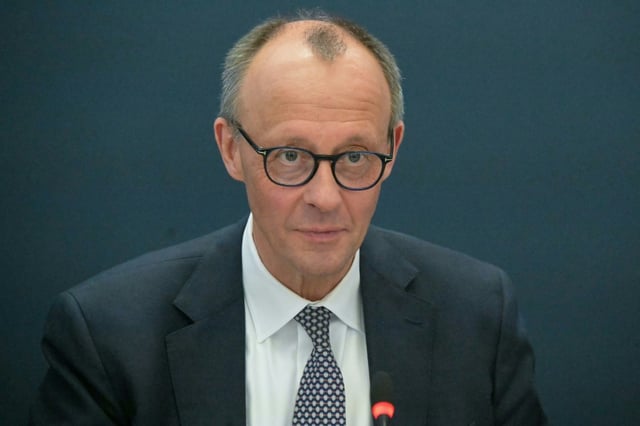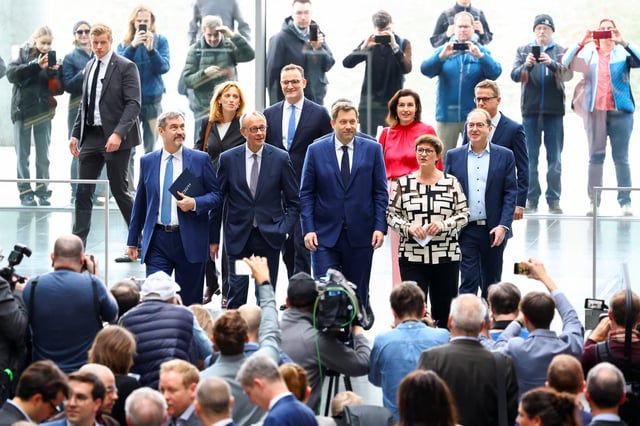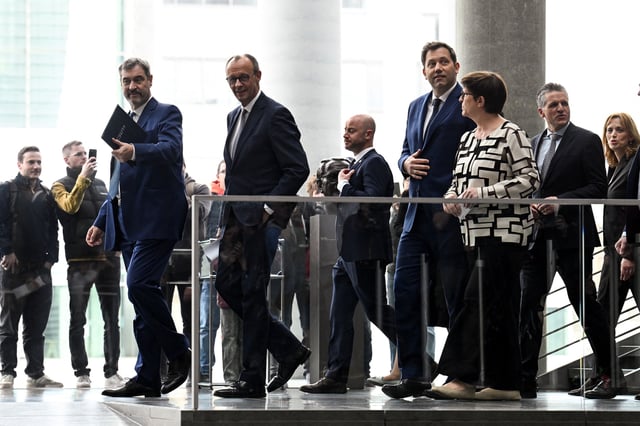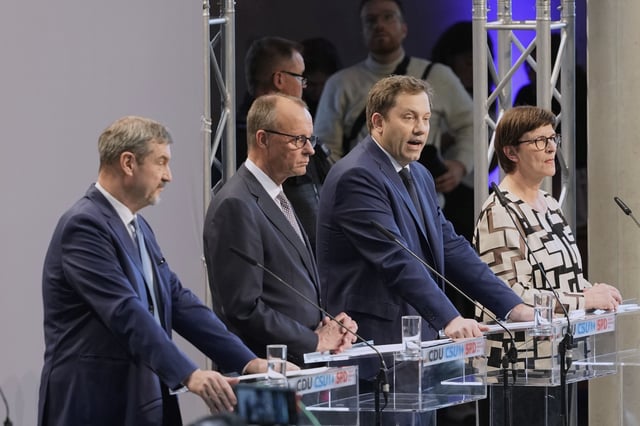Overview
- The CDU/CSU and SPD have reached a coalition agreement to form a government, with Friedrich Merz poised to be sworn in as chancellor by early May.
- The deal includes significant policy shifts, such as lifting the 'debt brake' to increase defense spending and infrastructure investment.
- The coalition aims to counter the far-right AfD, which has surged to become Germany’s most popular party in recent polls.
- Internal party approvals are still required, with SPD grassroots and senior CDU figures expected to vote on the agreement in the coming weeks.
- The coalition was expedited by external pressures, including US tariffs and economic uncertainty, as well as internal political instability.



